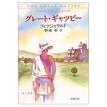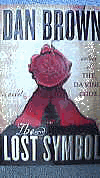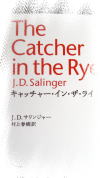|
What I talk about when I talk about running.(村上春樹) 10/15/2010
I would go so far as to say that this is the runner's bible and so is
it to me. I found I had so much in common with Haruki as a city runner,
which makes me pleased. I think Haruki has something special in his philosophy
of life, but has nothing special in his philosophy of running, for which
I repect him all the better.
He once was a serious runner, claiming to have run every day and 300km
a month. He reached his zenith at the age of 40 when he finished in 3 and
a half hours in races several times. I might as well say I have almost
the same running history as his.
What I like most about this book is that he presented the answer to the
questions I've often been asked ー Why do you run? What are you thinking
while running?
In this book are right answers to the questions non-runners are likely
to ask, to which I am much obliged.
The miracle Harry Potter and I shared
(ハリーポッターと私に舞い降りた奇跡)10/13/2010
I was so much impressed with this book, written by Yuko Matsuoka, that
I could identify with her way of life. Every one of her episodes has given
me enough courage to step forward and to try something innovative. I've
learned from her that there is no futile effort in life and life is something
like an unpredictable jigsaw puzzle. It is not until the jigsaw puzzle
is completed that we can realize the whole picture of it. I think the genius
is reffered to as the ability to keep making effort.
漢文力(加藤徹) 6/9/2010
This is a book Dr. Yamaoka at Ehime Prefectural Central Hospital, recommended
to me. To tell the truth I didn't have much interest in Chinese classics
and I had no idea why he picked it up of all the books; however, it didn't
take me half an hour to find the book truly worth reading. This book claims
that Chinese classics already offered the answers to various problems modern
people are faced with and gives some tips for who we are, what the life
and death are, what the life after death is like, and etc.
In fact I felt totally refreshed after I read some chapters of the book
- it is as if some of my worries were thrown away. I am encouraged to do
what I really want to do for the rest of my life. The author seems to tell
me that I have made the right choice. Now I'm much obliged to Dr. Yamaoka
for recommending this book.
The Great Gatsby 5/11/2010
 It takes much more time to read The Great Gatsby than the books I’ve ever
read and I like this book all the better for it. There are a plethora of
sentences and phrases as if studded with jewels in it. When I came across
such sentences I found it quite hard to proceed to read, glued to its enchantment.
I tasted it again and again until I was fully able to extract genuine pleasure
out of it and digest it. It takes much more time to read The Great Gatsby than the books I’ve ever
read and I like this book all the better for it. There are a plethora of
sentences and phrases as if studded with jewels in it. When I came across
such sentences I found it quite hard to proceed to read, glued to its enchantment.
I tasted it again and again until I was fully able to extract genuine pleasure
out of it and digest it.
Tom and Miss Baker … strolled back into
the library, as if to a vigil beside a perfectly tangible body, ….
They were, at least, agonizingly aware of the easy money in the vicinity
and convinced that it was theirs for a few words in the right key.
Reading this kind of books requires not just competency in English but
the best possible imagination. It is more of picturizing what we learned
from the book. When we fail to visualize the story we’ll fail to enjoy
it. The Great Gatsby is a book I want to read several times and it won’t
fail me.
Sherlock Holmes 3/15/2010
"Sherlock Holmes", starring Rober Downey Jr. and Jude Law, offered
a totally different image of characters from what I've had for them. They
sure are a new type of superheros. I appreciate the director Guy Ritchie's
bold challenge of reimaging that makes the famed sleuth a daring man of
action as well as a peerless man of intelligence. I assure you Sherlock
Holmes Ⅱ comes out.
The Lost Symbol 2/12/2010

I can't stop reading once I started. I bet you, too.
The Catcher in the Rye 2/12/2010

I bought a translation of this book by Haruki.
"He was two years younger than I was but was fifty times as intelligent."
I think Holden uses very simple and clear-cut way of description: not
twice as intelligent nor very intelligent, but fifty times! His brother
Alli must have been more than a genius or Holden must have been very stupid.
Another way of his description is the way he told how red Alli's hair
was. He said, "He was sitting there, about a hundred and fifty yards
behind me, watching me tee off. That's the kind of red hair he had. "
He didn't just try to use any metaphor to describe the red hair: red as
blood, setting sun, pomato juice and so on, but tried to teach us in a
unique dimension- You could have seen his red hair even from such a far-distant
place.
This is what I really love about the book.
The Catcher in the Rye
"Do you feel absolutely no concern for your future, boy?"
"Oh, I feel some concern for my future all right. Sure. Sure, I do."
I thought about it for a minute. "(1)But not too much, I guess. Not too much, I guess."
"You will," old Spencer said. "(2)You will, boy. You will when it's too late."
(1) The repetition of the same phrase in the original could result in
the same tactics in translation, as well. Hakuki, however, avoided this
awkwardness, which I really appreciate.
(2) Instead of present tense, Haruki used present perfect tense for the
phrase when it's too late., which, I think, best fits asr its translation.「でもそのときにはもう手遅れになっておる。」)
The Catcher in the Rye
I compared the two translations, one by Nozaki Takashi and the other by
Haruki. The most impressive part of Haruki's translation I've read so far
is putting "boy?" into "Ahmu" or "あ~む", for which Nozaki gave
"Boya" or "坊や."
"Boya"is within the scope of my assumption, while Ahmu is not. Who
but Haruki on earth could think of giving "Ahmu" to "boy"? He
must have thought Holden felt something provoking and exasperating about
the term "boy", which old Spencer used too often in their conversation.
Haruki, I think, tried to find another patronizing Japanese word which
really gets the boy's nerve. It had to be something other than "坊や."
|